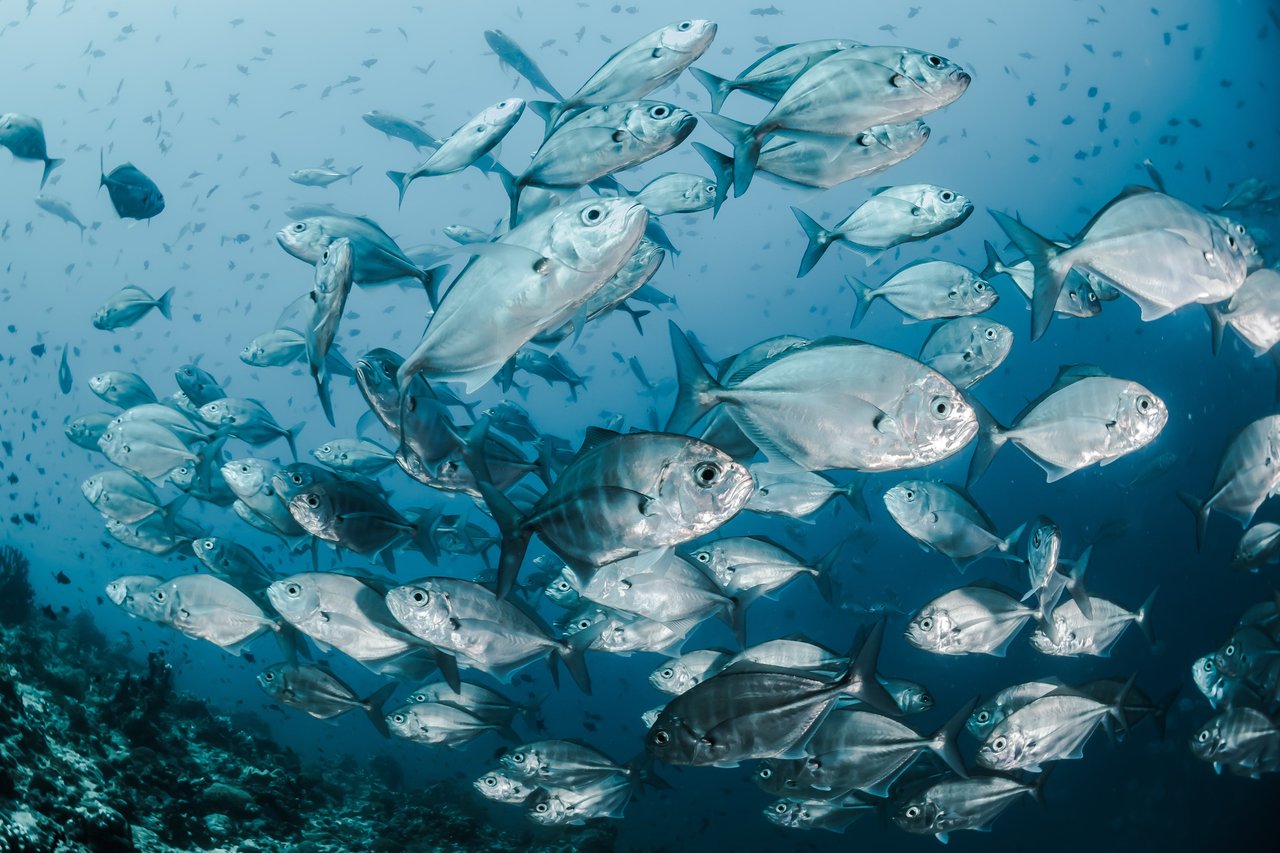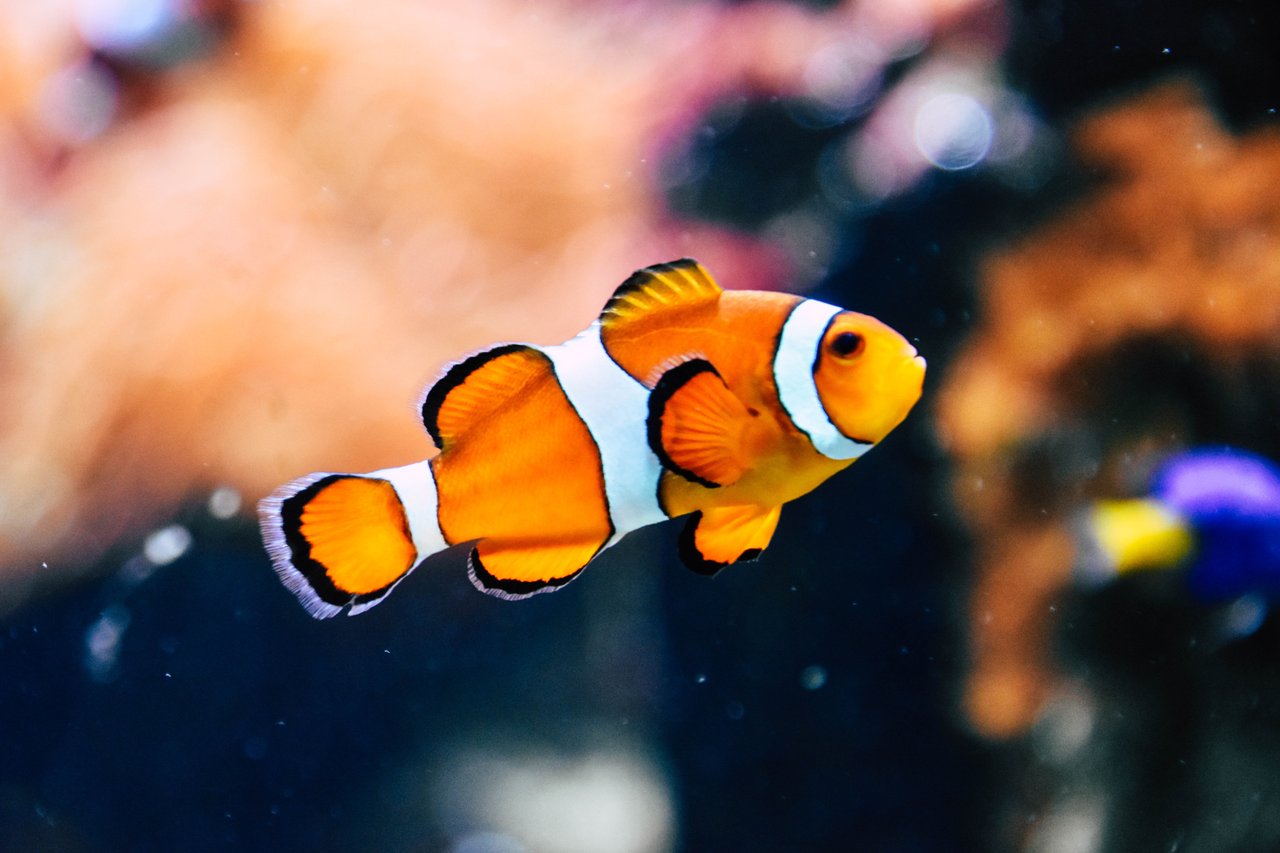
Fish facts
Common name: Fish
Groups: Osteichthyes, Agnatha, and Chondrichthyes
Distribution: Worldwide
Here are some fascinating facts about fish!
There are over 33,000 different types of known living fish species - this is greater than the total of all other vertebrate species (amphibians, reptiles, birds, and mammals) combined! And all these species are very distinct. They only things they have in common are that they live in the water, and they have a backbone.
The term “fish” encompasses a wide range of animals. There are three main types of fish: bony fish (Osteichthyes), jawless fish (Agnatha), and cartilaginous fish (Chondrichthyes).
Fish breathe underwater using gills to filter oxygen from the water, and have specialized organs called swim bladders that help keep them afloat.

Fish are sentient beings – they think, feel, and have unique personalities
- A review by World Animal Protection found decades of research showing that fish are sentient, and can experience a range of emotions and feelings.
- Fish can feel pain. Numerous studies have proven time and again that fish feel pain, and it matters to them.
- Contrary to popular belief, goldfish do not have a 3-second memory. In fact, goldfish have been found to remember things weeks, months, and even years later.
- Zebrafish are less fearful when they have the chance to exercise. This has important implications for their housing, as if they do not have enough space to move freely, then they are likely to feel stressed and fearful.
- Fish like to play. One of the most common forms of fish games is leapfrogging, where a fish repeatedly jumps over objects or other fish in the water. Scientists do not know exactly why they do this, but one theory is that it is simply fun to do.
- When fish are kept in poor environments, with little complexity and options for exploration, they suffer poor moods and are more fearful, compared with fish who are kept in enriched environments.
- When fish are trained to predict the delivery of a feed reward, they start to show anticipatory behaviour indicating frustration, and loss of control, and if the reward is delayed, Atlantic salmon are known to become aggressive.
- Fish have personalities and this can affect their well-being in many ways. Bold zebrafish are more likely to catch and swallow microplastics, compared with shy individuals.
- Cleaner wrasse fish can recognise themselves in a mirror. The mirror self-recognition test is thought to indicate self-awareness and higher levels of cognition. The fish responded to the mirror in the same way as mammals and birds do, and tried to remove the red mark they saw on themselves in the mirror.
- Fish kept in barren environments have poorer spatial cognition, and are more aggressive, compared with fish kept in complex environments.
- Cod feel pessimistic and suffer low moods when they lose in a fight with another fish.
- Red sea bream retain their memories for longer when they are trained with rewards, compared with when they are trained with punishment. In general, they retain reward-based memories for at least 30 days, but only remember punishment-based memories for 1 day. Although, as all fish are individuals, there are individual differences in their memory spans.
